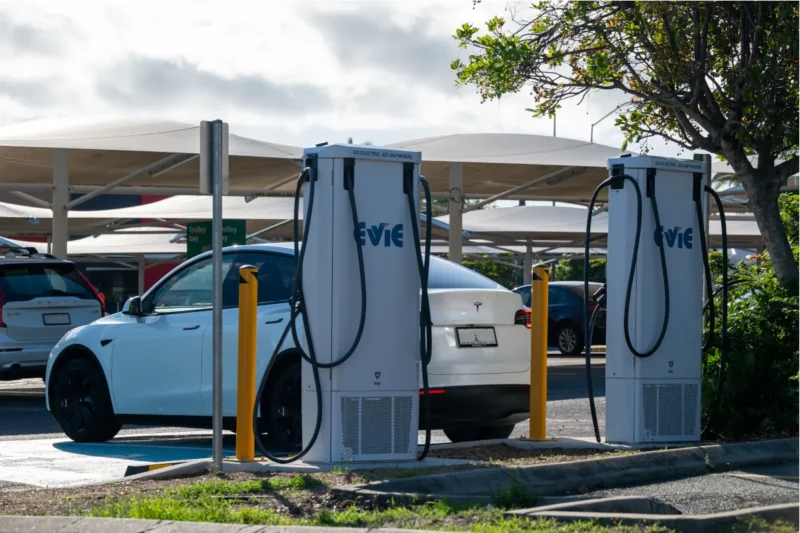Electric vehicle fast charging network provider Evie Networks has explained why it had to change its payment protocols – including what turned out to be a temporary measure of requesting $30 pre-authorisations for every credit card transaction – saying many drivers had been “committing” fraud to avoid payments.
Evie Networks says that it experienced significant levels of transaction declines under its old protocols, and was often unable to secure payment despite kilowatt hours being delivered to EV customers.
“We found that while most payment declines were accidental, there was a significant proportion of declines that were intentional, with drivers committing fraud to avoid payment,” the company writes in a Knowledge Sharing report submitted to the Australian Renewable Energy Agency as part of its funding agreement for the rollout of its EV chargers.
“This is the equivalent of filling a car with petrol and driving away without paying.”
The requirement for a $30 pre-payment authorisation met with some negative feedback, including from readers of The Driven when it was introduced earlier this year, which Evie Networks achknowledges, and it has already moved on to a new system that links directly to customer accounts, similar to the protocol rolled out by Tesla several years ago.
Evie now has around 270 EV charging stations and more than 600 charging bays. Its report says EV chargers are particularly affected by credit card transaction declines, because while a 5 % rate of decline is typical in retail settings, that usually means that the item is not taken away. It’s a different story in EV charging at unattended stations.
“As the level of declines grew and reached an unsustainable level, it was clear that action was required to stem the flow of lost revenue,” Evie Networks writes.
“Pre-authorisation is not a payment, but a reservation of funds. It is the same as a hotel taking a pre-authorisation payment, or a vending machine checking that there are sufficient funds before distributing a drink. Evie does not receive funds from pre-authorisation, nor are funds taken from the customer account.”
It acknowledges, though, that there were problems, because some banks were slow to respond. “The pre-authorisation hold is often released on the same day, but some banks are slow to act and can take up to 5 or 7 days.”
Still, it says the rate of payment declines has dropped by 75 per cent. “There has been some negative feedback from customers, but this is most often due to a perception that pre-authorisation is a payment.”
And CEO Chris Mills tells The Driven that the new “Autocharge” system has been very successful, and the pre-authorisation protocol was removed a few weeks ago.
“Autocharge identifies the car, the account and the credit card,” he says. “It is fantastic. It is very Tesla-esque.”
And, he reports, driver usage is increasing, with customers a week jumping to 10,000 from 7,000 and sessions a week to 13,000 from 10,000. The next step, he says, is to address the problem of grid demand charges, which he and others say is adding unnecessary costs to charging companies. That will be a story for another day.

Giles Parkinson is founder and editor of The Driven, and also edits and founded the Renew Economy and One Step Off The Grid web sites. He has been a journalist for nearly 40 years, is a former business and deputy editor of the Australian Financial Review, and owns a Tesla Model 3.

